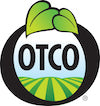Is Your Fleece Poisoning Your Fish Dinner?

Micro-beads have been in the news lately as states move to ban them from body care products because they wind up in waterways, poisoning fish and contaminating ecosystem. Now, new research points to another unsuspecting culprit: micro-plastic fibers in clothing.
According to the report, these tiny plastic fibers are coming off of clothing, like fleece, in washing machines and that water winds up in our waste streams, poisoning bodies of water.
“Every one of the 18 [fish] species we sampled showed some plastic and the majority of this was fibers,” Sherri Mason, professor of chemistry and environmental sciences program coordinator at the State University of New York at Fredonia told Civil Eats. Fish ingesting the plastic fibers in the Great Lakes include: brown trout, cisco–also known as “lake herring”–and perch.
The fibers are made to resist degradation, “these fibers they do just that and persist in the environment, rather than degrading quickly as might bio-based fibers, like cotton or wool,” Civil Eats explains. “Fish then ingest the fibers when they feed. When we eat those fish, we’ll be eating those fibers, too.”
But it’s not just human health at risk of eating the plastic. Marine animals who inadvertently ingest the micro-fibers can experience endocrine disrupting effects that can interfere with reproduction. Plastics like this are also a threat because they can soak up other toxic chemicals, oils and heavy metals present in the water and deliver them straight into the fish, which also poses health risks to the humans eating the fish.
“In their research off the California coast, Rochman and her colleagues have found metals (including lead and cadmium, known neurotoxins) and flame retardants–polybrominated diphenyl ethers (PBDEs)–that have been used widely in both hard plastics and upholstery foams and are known to be persistent pollutants,” Civil Eats explains. “They have also found polycyclic aromatic hydrocarbons (PAHs), compounds associated with fossil fuels and a variety of adverse health effects, and PCBs (polychlorinated biphenyls). The researchers have also found evidence that plastic debris is affecting endocrine hormone activity in fish.”
Micro-plastic is defined as anything 5 millimeters or less. You can help to reduce the impact of micro-plastics in the ocean by wearing clothes several times before washing, and investing in clothing made from natural fibers.
Image: Esther Cantero
Leave a comment
Comments will be approved before showing up.


